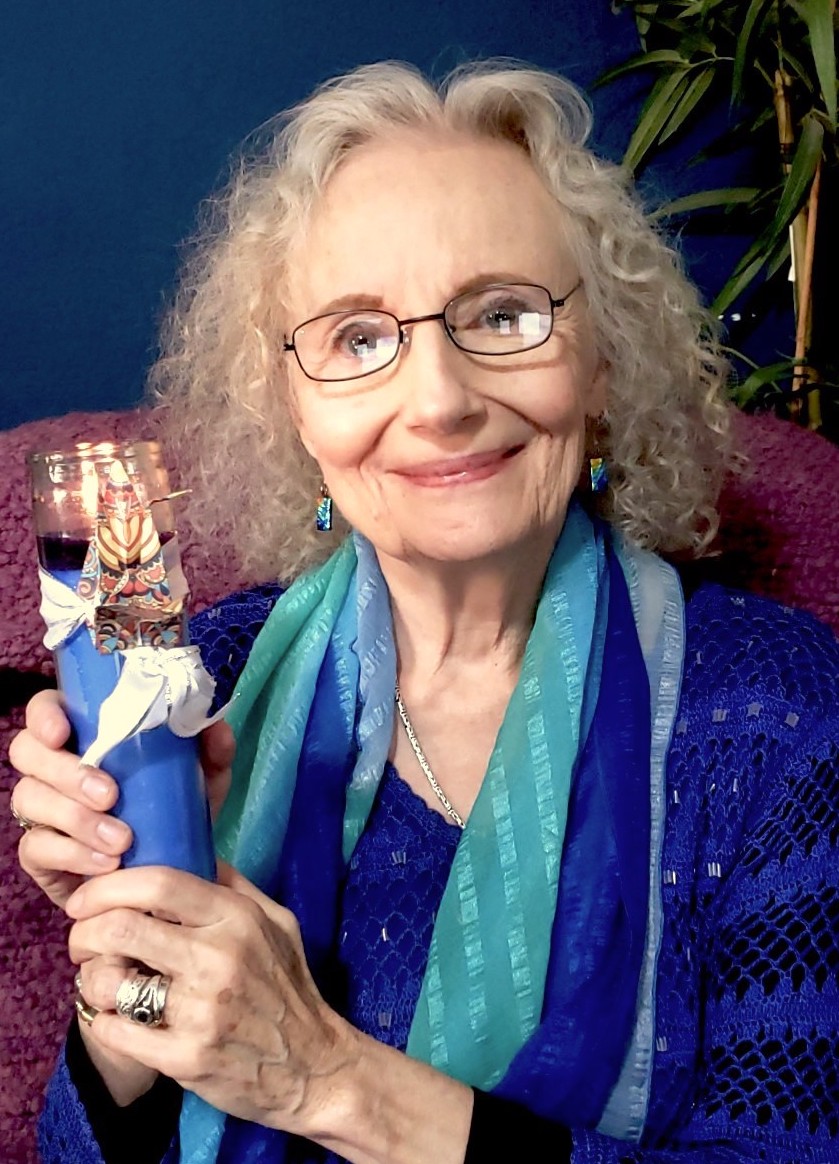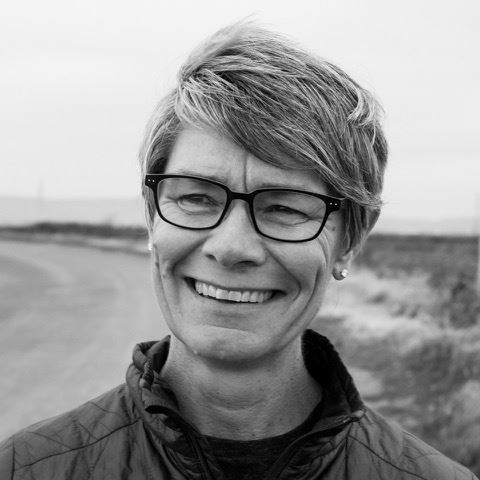
Back to Spring 2021 Newsletter
by Rowena Dodson, LMFT, SCV-CAMFT Director at Large
Since 1970, Janet Childs has been actively providing crisis intervention counseling and education focusing on the dynamics of loss, illness, crisis and grief. As a founding member of the Centre for Living with Dying, Janet has worked with thousands of individuals, groups and professionals on the front lines. She oversees the educational programs and coordinates the Bay Area Critical Incident Stress Management Team. She has personally facilitated response to many major critical incidents such as 9-11, the Garlic Festival Shootings and most recently, the COVID 19 Pandemic. Combining her love of music with her personal and professional experience with loss, she creates a safe and healing environment to gently examine these difficult life issues.
Rowena: Thank you for taking time to speak with us (by written word) for this issue, Janet. We wanted to hear from you on grief, given the immensity of the losses we have suffered collectively and individually in this past year. Can you tell us a little bit about the Centre for Living With Dying and your role there?
Janet: I have had the honor to be a founding member of the Centre for Living With Dying, now a part of Bill Wilson Center. The Centre for Living With Dying (CLD) has, for 45 years, provided grief support, education and crisis intervention to professionals and our community. We work with people facing serious illness, traumatic loss, death and grief through our grief groups, serving all ages including children. We also provide support to first responders and caregivers in our Bay Area Critical Incident Stress Management Team.
Rowena: You mentioned in our phone conversation something called “360 grief.” Can you talk a little more about that?
Janet: We are living in what I call “360 Grief/Stress.” Every part of our lives is affected. We cannot take a step out of our dwelling, or if we are un-homed, we may not even have a house to leave; we can’t eat a meal, perform our job, interact with our loved ones without thinking about these “pandemix” times. Because it is not only COVID 19, which is invisible and at this time has no end point. The scabs have been torn off the wounds of racial inequity and social unrest. We are facing multiple natural disasters and climate change. Whether one is dealing with family members at home, or the enforced isolation of the pandemix, or personal losses, the stress is a spiral of feelings and reactions with no clear beginning or end.
Rowena: I know you work with caregivers and first responders. What would you want to tell therapists about their own grief and stress right now?
Janet: It is important to acknowledge that we, as caregivers, do absorb the trauma that we witness in our clients. Indeed, stress is taken in the body and processed through the senses. Trauma research shows us that our experiences are received through the five senses, so even when our mind is keeping a distance, we are still imprinting in the neural pathway of our brain all of the details of the illness, the trauma, the pain. Caregiving and response professionals necessarily utilize their sensory input in performing their job on a daily basis. As a result, stress/trauma has imprinted on several sensory paths as we’re doing our jobs. We have found at CLD that this occurs in both witnessed trauma and imagined trauma.
As helping professionals, we often do what we call “comparison stress shopping.” We might minimize our stress or compare it to our clients, coworkers or family/friends. When we minimize or downplay our stress, it weakens our immune system. When we acknowledge and own our stress, it boosts our immune system—our mind and body are in agreement and mobilize together to support us. Dr. Kelly McGonigal, of Stanford University, has done years of research on stress: her terminology is ”tending and befriending.”
How to build resiliency in these times with ourselves and one another? Right now, even as we need to physically distance for our health and well-being, we do not need to “socially distance.” Just changing the terminology in our language can open up possibilities for interacting in a meaningful way. At the Centre, we have discovered the powerful medicine of acknowledgement, expression, action and reconnection as a formula for meeting stress, trauma and change.
In our modern society, great emphasis is placed on what we do as a gauge of our worth as human beings. When we experience change, loss or transition in our work environment, it can have far reaching effects on our personal lives, our self-esteem as well as our beliefs and values. Dealing with change, in the workplace and in our personal lives, in a pro-active way, can be a key factor both in individual and team performance as well as job satisfaction in these incredibly difficult times. We can gather as a work group together and acknowledge that we are experiencing unprecedented times. As co-workers, we spend more time with each other and we are the best support for each other. I would recommend that workplaces create a “Critical Incident Stress Management” Team… where peers are supporting peers. For therapists who are working in a single practice, please get connected to a local CISM Team, and get the defusing you deserve. Our Team provides this to therapists in the aftermath of critical incidents.
Rowena: So acknowledgement of what we are going through is a very important step. Getting to know intimately what we are going through and “befriending,” so even some acceptance there. Can you talk about CLD’s framework for this process, your “formula” as you call it?
Janet: At CLD, we have a set of questions that we teach people to acknowledge and feel their grief, and to name what is supporting them right now. These can be used by friends and family with their loved ones, so using these questions does not require a therapy background. And yet I think they are very powerful in opening up honest sharing about one’s grief. Here are our grief triage questions:
- First acknowledge your/my grief. What is the most powerful, difficult, hardest part for you/me right now?
-What would work for you/me right now, to support you/me in getting through this?
-How can you/I get what you/I need right now?
-What action steps can you/I take?
-What can you/I reconnect with right now that is still good, still meaningful and still important? What are you/am I most grateful for right now?
It may seem simple, but having this structure calms our chaos a bit and allows us to have more control. There is an ancient wisdom saying that states: “We cannot control the event that has happened, we can only control how we will respond to it.” Victor Frankl’s book, Man’s Search for Meaning, addresses this beautifully.
We recommend “Walk Talks,” a concept we created over 30 years ago. You can do walk talk three different ways. Physically distancing, and with masks, meet in nature, outdoors, and go for a walk; communicate with your cell phones and walk separately; or do it solo, and ask yourself the questions while walking. Being outdoors is a great way to connect with the greater forces of nature, creating a larger container for pain, struggle and joy.
Rowena: Anything else that you would like to share with us in this moment?
Janet: Dr. Maya Angelou very powerfully commented “I've learned that people will forget what you said, people will forget what you did, but people will never forget how you made them feel.” It is your presence and your willingness to show up that people remember. So in these times, we do not have to have the answers. Simply by asking/acknowledging, listening/allowing for expression and by validating/accepting their truth, we are creating that safe environment for them to explore making meaning out of their experience. In the Ugandan tradition, instead of the many clichés that may be shared after a tragedy, they simply say, “I stand beside you.” It creates a sense of being united with each other: we do not have to do it alone. This was shared with us by a paramedic on our Bay Area CISM Team who went to Uganda with Doctors without Borders, and heard the local people sharing this sentiment with each other.
Rowena: Thank you so much for your time and your wisdom. We wish you well as you retire from CLD and embark on your next chapter.
Janet: You’re so welcome, thank you for speaking with me.
 Rowena Dodson is on the SCV-CAMFT News committee, and has been a licensed therapist since 2016. She has a private practice in Mountain View, and works as a per diem therapist at El Camino Hospital adult outpatient behavioral programs. Her emphasis has been on helping adult clients find their voice and their power to shape the lives they want. She can be reached at director-at-large@scv-camft.org.
Rowena Dodson is on the SCV-CAMFT News committee, and has been a licensed therapist since 2016. She has a private practice in Mountain View, and works as a per diem therapist at El Camino Hospital adult outpatient behavioral programs. Her emphasis has been on helping adult clients find their voice and their power to shape the lives they want. She can be reached at director-at-large@scv-camft.org.
For more about working with grief and loss, you can check out Janet’s book:
Experiential Action Methods and Tools for Healing Grief and Loss Related Trauma: Life, Death and Transformation by Lusijah Darrow and Janet Childs.
Back to Spring 2021 Newsletter
